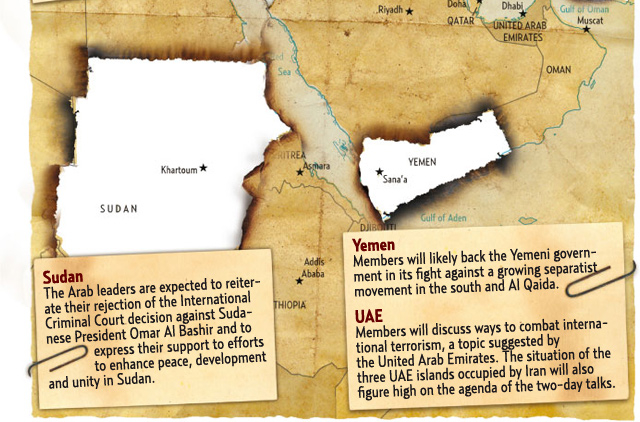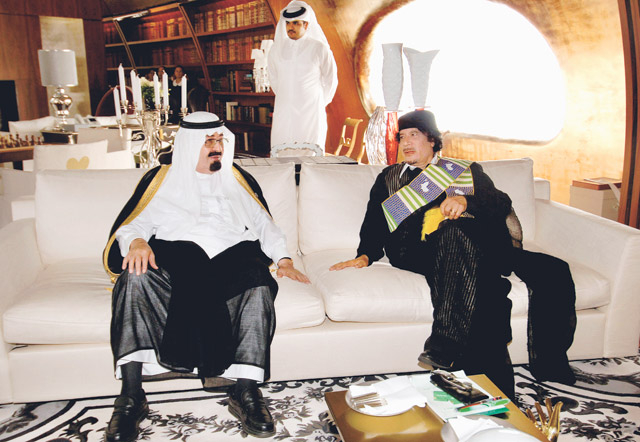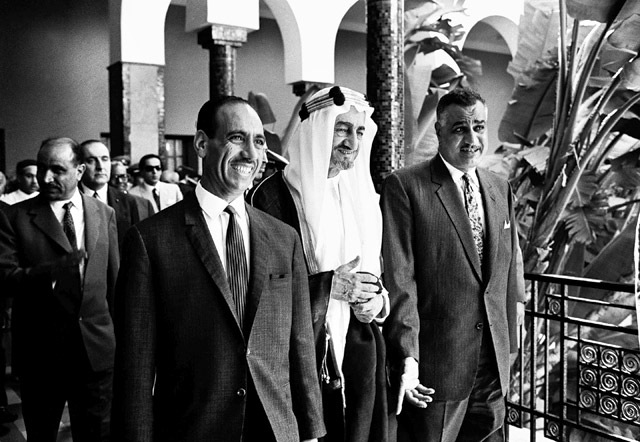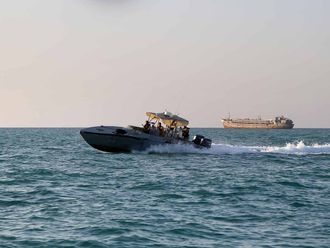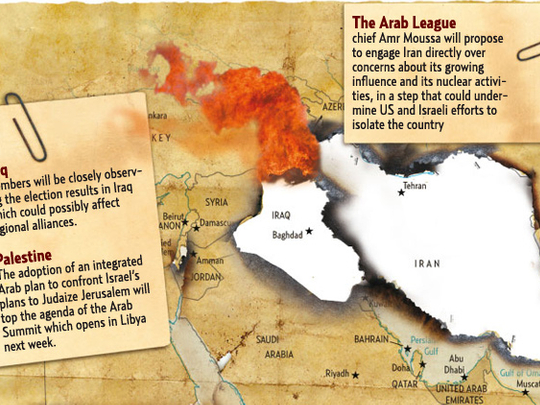
Manama: The adoption of an integrated Arab plan to confront Israel's plans to Judaise Occupied Jerusalem will top the agenda of the Arab Summit which opens in Libya on Saturday.
The six-decade old Arab-Israeli conflict has traditionally dominated high-level debates at Arab summits, but will this year take a greater significance amid mounting ominous tension fuelled by the current Israeli government's exceptional intransigence and high colony-building propensity.
Its decision last week to approve the building of 1,600 new homes in occupied east Jerusalem has caused international outrage and sparked concerns as to whether the current cabinet is interested in proxy peace talks. The European Union on Monday said that it was "very disappointed by the position of the Israeli government."
Arab leaders meeting in the coastal city of Syrte Saturday will certainly condemn the Israeli position and are likely to draft a plan for action to save Occupied Jerusalem as they reaffirm commitment to the Arab Peace Initiative.
Consolidate support
A review of the latest developments in Palestine will mean a look into ways to reinforce the budget of the Palestinian National Authority (PNA) and to consolidate support for the Palestinians.
The Palestinian delegation will submit a detailed report on all the Israeli abuses from 1967 to 2010.
Arab leaders will also urge states whose passports were used to help track down those who killed a Hamas official in his Dubai hotel room, according to a draft resolution for the summit.
A copy of the draft condemns the murder in January of Mahmoud Al Mabhouh, a founder of the military wing of the Palestinian Islamist movement Hamas, as a "criminal and terrorist act."
The Arab leaders are also expected to voice support for the Golan Heights occupied by Israel since 1967 and to express their solidarity with Lebanon.
An initiative to help address inter-Arab differences, presented by Syria, and a suggestion to invigorate common Arab action, submitted by Yemen, will also be taken up by the Arab leaders.
The agenda also includes the latest developments in Iraq. Libyan leader Muammar Gaddafi, the host, on Sunday told a group of Iraqis that he "cared deeply about them" and that he would represent them at the gathering.
The summit, to be held for the first time in Libya, will discuss ways to combat international terrorism, a topic suggested by the UAE. The situation of the three UAE islands occupied by Iran will also figure high on the agenda of the two-day talks.
The US sanctions on Syria and Sudan that limit the ability of the two countries to purchase or lease aircraft and the consequences of the embargo on spare parts on civil aviation safety and security will also be reviewed at the summit.
The Arab leaders are expected to reiterate their rejection of the International Criminal Court decision against Sudanese President Omar Al Bashir and to express their support to efforts to enhance peace, development and unity in Sudan.
Al Bashir last year became the court's highest-profile target and the first sitting head of state to be named a fugitive from international justice.
Another topic to be taken up by the summit is a project to boost the use of the Arabic language as Arab countries move steadily towards an information society.


